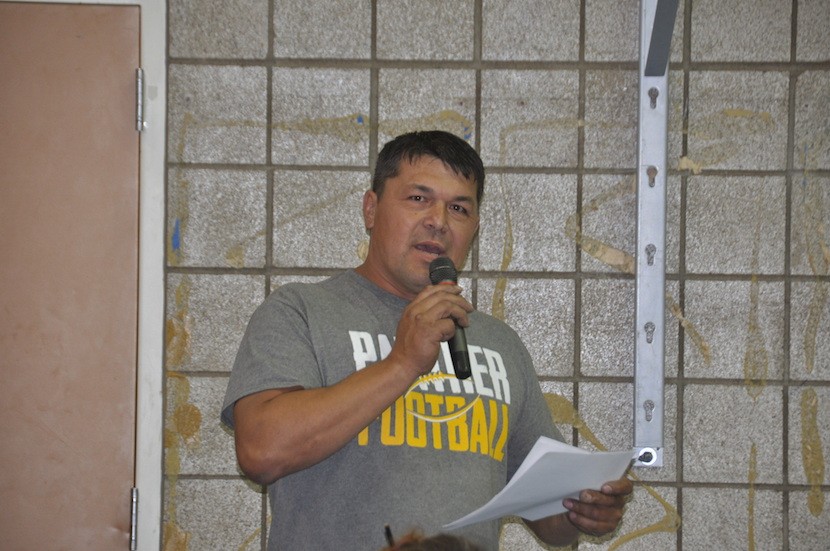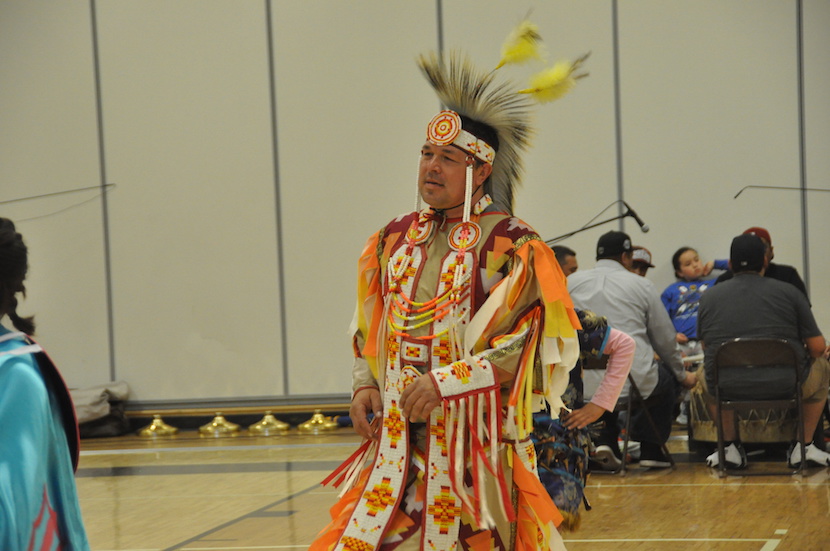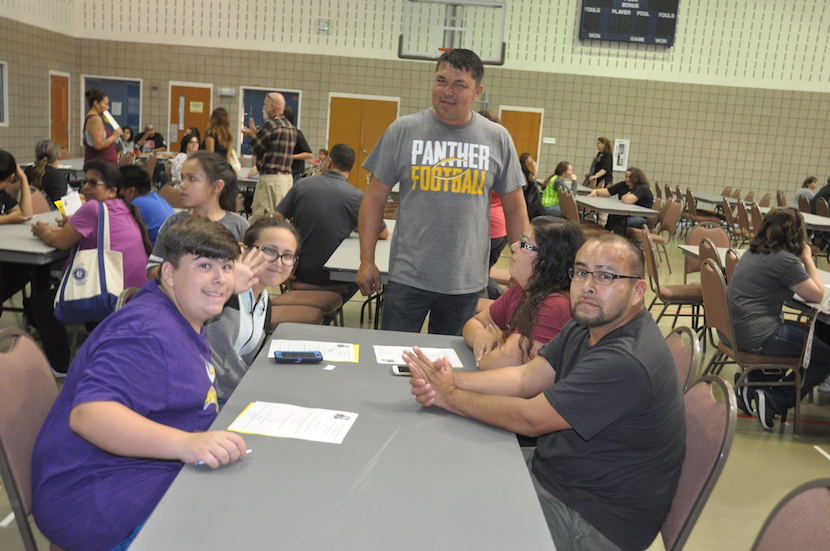
Amikogaabawiikwe Adrienne Benjamin Interviewer
Q: Tell me about yourself.
A: I have three jobs. First, I’m a dad, my most important job and my own investment into the world. Second, I’m a school board member (the chair) investing my energy into the future. Third, I have my construction job; a home is the biggest investment that anyone will make in their life. I’m extremely proud to be a part of all of those things. I have a beautiful life-partner, Nicole, and five kids: Dionne, Keenan, Josh, Jacob, and Emma. They are my driving force in trying to be the best person and making the right decisions all the time. I am currently in the Blandin Reservation Community Leadership Program. I enjoy spending time at the lake, playing volleyball, and a lot of time with my family. On Sundays, I dedicate that one day to my family, doing things we all love, and it helps keep my family strong and keeps me stress free.
Q: What made you want to run for Onamia School Board?
A: At first I was actually brought in to fill an interim position. After that I realized that I could make an impact and that there was so much to the job that I didn’t understand yet. I wanted to give back to the school. I was a hellion of a kid, and because of teachers’ belief in me, I believe that I turned into a better kid than I would have had I not had those adults that believed in me while I was in school. I also wanted to have an active role in my own kids’ education. At the time I had four kids attending school in the district, so it seemed like the right thing to do.
Q: What has been the biggest challenge for you?
A: This year has been interesting getting to know everything. There’s so much to this position — overseeing vision and trying to make the right and best decision in thinking about all the kids. If you help only kids who are struggling, then you’re not doing right by the kids who are thriving, so the hard part is finding a balance between the two. Another challenge is trying to make sure that everyone’s voice is heard. When you’re the board chair, you’re the voice of the rest of the board members and you represent them, so you have to make sure that everything you’re saying is good for the group. Even though we don’t always agree, there is a cohesive bond that holds us all together.
Q: What are you most surprised to have learned in your experience?
A: I was honestly really surprised that we have so many Native kids at Onamia. This year the Native student population is at 52 percent. I was also really surprised at how behavior and family connection are really tied to the educational experience. It takes so long to see the results of your decisions; it’s slower over time to see any difference that we are really making. I think in general, people think that as a school board these changes can happen automatically. I may have even thought that, but it doesn’t work that way, not even close.
Q: What impact do you hope to have during your time in this position?
A: I hope to bridge the gaps between Native and non-Native staff, students, and board members. I’ve always had to ride that line myself, and I want to be a part of moving that forward. As a board, we’re trying to foster togetherness and look at everything through the kids’ eyes before kids get confused by the extra things happening in their lives. When you have more than a 50 percent Native population, sooner or later, somebody from one side is going to become friends, and it molds together with kids. Prejudice is hard to break, but this school provides a great place for it to break. I hope that we in the district can all come together for the best of the kids. As a parent and as a board member, we have the responsibility to get our kids ready for the WHOLE world. We want them to be ready for any challenge and for them to believe that they can be anything and go anywhere, not just on the reservation or this area, but anywhere.
Q: What is an average school board meeting like? What types of things are discussed?
A: It always changes; it honestly depends on the time of the year. There’s a lot of budget discussion. We have a work session every month when we work on policies, budgets, and committee meetings, and that’s where the majority of the hard work is done. The actual board meetings are our rollout to the public forum, to listen to suggestions of the public, and make any changes at that time. Every meeting is open to the public, because we are technically spending public tax funds.
Q: Why do you feel that it is important for more Band members to run for school board or other outside elected positions?
A: We are a part of the world that surrounds us, and the more that we can be involved, the more impact we will have in our sur- rounding communities if we’re out there representing them. It also helps to alleviate some of the angst that goes along with existing in both of the worlds we navigate as Native people. The more we are out in the community, whether it’s business or education, we’re always needing the community to come together. The more people who we can educate about who we are and what we are about, the better. It will make this community better. We all want the same things, specifically when it comes to our children in the school district.
Q: How can Band members get directly involved in what is happening at Onamia Schools?
A: LIEPC is held once a month at the ROC, and it’s an avenue where Native families can be involved in decision-making practices involving Indian education. We have school board meetings, family fun nights, extra-curricular activities, and sports. Anyone can volunteer at any time. It is fulfilling to the volunteer and to the students in the school. We are trying to foster a family feeling at the school, and the more people who get involved, the more it helps the cause.
Q: How do you deal with the stress of the position?
A: This is kind of a transition period for me. It’s a good lesson in how to get along with others. In my normal job in construction, I can swear and say what I think. In this position on the school board, that obviously isn’t acceptable. I have had to learn quickly how to function in group settings, and it has made me a better person. I honestly don’t really get stressed about it. We all work as a team, so that makes it easier. If you put your heart into it and believe in what you’re doing, even if you screw up, there’s nothing to feel bad about. You know you tried your best.

